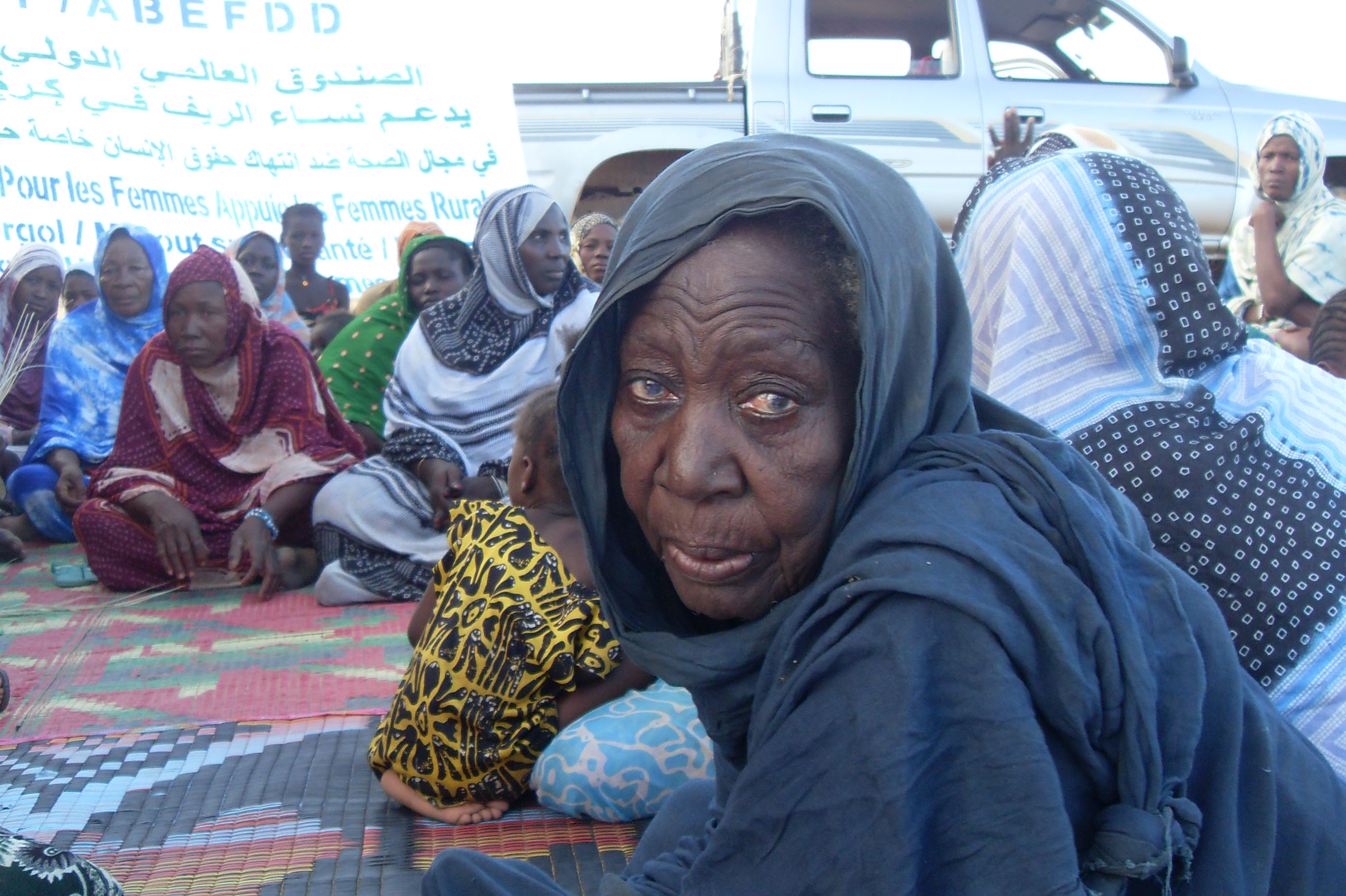Women’s voices and perspectives are scarcely heard in decision-making spaces, even within their communities.
Why we care: Women are underrepresented in politics in Mauritania, and rural women are not aware that they have the right and power to vote and run for office.
How we’re solving this: Training rural women to lift up their voices, know their rights, and run for national and local offices.
In Mauritania, women hold only 19 percent of National Assembly seats and 17 percent of Senate seats. Women’s voices and perspectives are scarcely heard in decision-making spaces, even within their communities. Due to isolation, discrimination, and fewer opportunities, rural women have difficulty accessing information about how they can become involved in the affairs of their communities and nation. However, opportunities are in sight: Mauritania will hold legislative and municipal elections this September 2013 and women are determined to be included.
Assistance aux Femmes et Enfants en Difficulté, or Assistance to Women and Children at Risk (AEFD), was ranked as the number one non-governmental organization in Mauritania for advancing women’s political rights last year. AEFD works closely with the national government to successfully develop awareness and advocacy campaigns aimed to bring more women into politics.
Now with increased momentum, AEFD will educate 1,000 underprivileged rural women and their communities (Nouadhibou, Aleg, Boghé, and Kaédi) on the need for more women to run for political office and vote for candidates that will uplift their voices and rights. Women who show exceptional motivation and leadership will participate in four workshops on public affairs management, political communication skills, and developing advocacy campaigns. These women will have the opportunity to run for local offices and ultimately prioritize a political agenda that bolsters women’s rights.
Many other women participants will take part in two workshops and discuss strategies for ensuring that more women take on decision-making positions. Women will also learn about legislation and international treaties ratified by Mauritania that hold the government accountable for enforcing women’s rights. Alongside trainings, AEFD will organize public debates and conferences with local elected officials and community and religious leaders to mobilize support for women candidates.


